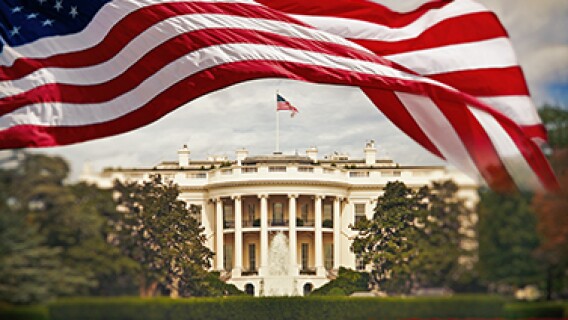As impeachment proceedings against President Trump continue, it’s natural to wonder what their effect will be on the stock market. Will stocks dive from their current heights on fears that the government will become increasingly dysfunctional? Will stocks soar as investors anticipate there being a rational sensible outcome? Or will stocks ignore the whole thing, taking their cues from the more relevant factors like revenues, earnings growth, interest rates, tariffs, trade deals, tax levels, etc.?
For clues, the best thing we have is precedent—the impeachments of presidents Johnson, Nixon and Clinton.
[text_ad use_post='129622']
The Impeachment of Andrew Johnson
The impeachment of Andrew Johnson was initiated on February 24, 1868. On March 2-3, the House formally adopted the articles of impeachment and forwarded them to the United States Senate for adjudication. The trial in the Senate began three days later, but no conviction was achieved and on March 26 the trial was adjourned and Johnson remained in office. Imagine that—a speedy month and two days, from start to finish!
What the Stock Market Did
The stock market was a lot smaller then and data is a little sketchy, but analysts have reconstructed a proxy and concluded that in the three months prior to the commencement of impeachment proceedings, the stock market was up a little over 10%—thus in a bullish phase. During the period of impeachment, the market corrected moderately, but in the two months following the end of the impeachment proceedings, the market resumed its uptrend, and was 6% higher than before the proceedings had begun.
Bottom line: The market was in a bullish phase as the forces of post-Civil War industrialization were unleashed and the impeachment was just a bump in the road.
The Impeachment of Richard Nixon
Impeachment proceedings against Richard Nixon began on October 30, 1973. Nine months later, on July 27, 29 and 30, 1974, the Judiciary Committee approved three articles of impeachment against Nixon. But before a trial could begin, Nixon resigned from office on August 9, 1974.
What the Stock Market Did
Over the nine months from start to finish of the impeachment process, the S&P 500 fell 23%. Ouch!
But there were factors at play that were bigger than Nixon’s impeachment proceedings.
First, the market had soared in the 1960s (The Nifty Sixties) as blue-chip stocks were awarded sky-high valuations, but as inflation began ramping up in the 1970s, consumer confidence fell, and investors turned more cautious.
The S&P peaked at the end of 1972, and entered into a two-year bear market, so when Nixon was impeached, the trend was already terrible.
Putting the nail in the coffin, just a week before the impeachment proceedings began, the Organization of the Petroleum Exporting Countries (OPEC) announced an embargo on oil, introducing Americans to gasoline lines and rationing.
Bottom line: Nixon’s impeachment occurred in the middle of a two-year bear market and likely had little effect on the market.
The Impeachment of Bill Clinton
Impeachment proceedings against Bill Clinton began on October 8, 1998. On December 19, the House formally adopted the articles of impeachment. The trial in the Senate began in January 1999, and on February 12, four months after it started, Clinton was acquitted, and he remained in office.
What the Stock Market Did
Over Clinton’s four-month impeachment period, the S&P 500 rose 24%.
But as with Nixon, there were factors at play that were arguably bigger than the impeachment proceedings.
First was the expansion of the Internet Bubble, the mania that brought valuations to sky-high levels and ended less than a year after the impeachment proceedings concluded. (AOL paid $162 billion for Time Warner at the top—only to unload it to AT&T 17 years later for $85 billion.)
Second was cheap oil, the opposite of 1973. Crude oil prices hit a low of $10.68 per barrel in the middle of the impeachment period, oil’s lowest price in 12 years.
Third, there was actually a federal budget surplus in 1999, the first since 1969.
Bottom line: Clinton’s impeachment occurred in the middle of a very strong bull market and likely had little effect on the market.
What to Do Now
Follow the impeachment proceedings as closely as you like; part of being a good citizen is staying informed.
But don’t let any impeachment developments affect your investment system. Stick to what works!
As I write, the stock market is quite healthy, with most indexes near their highs. Interest rates are extremely low, and the U.S. is now an oil exporter, so OPEC is hardly a factor. Last but not least, Cabot’s market-timing indicators are all bullish, telling us this market is likely to be higher in the months ahead—impeachment or no impeachment.
[author_ad]
*This post has been updated from an original version.

